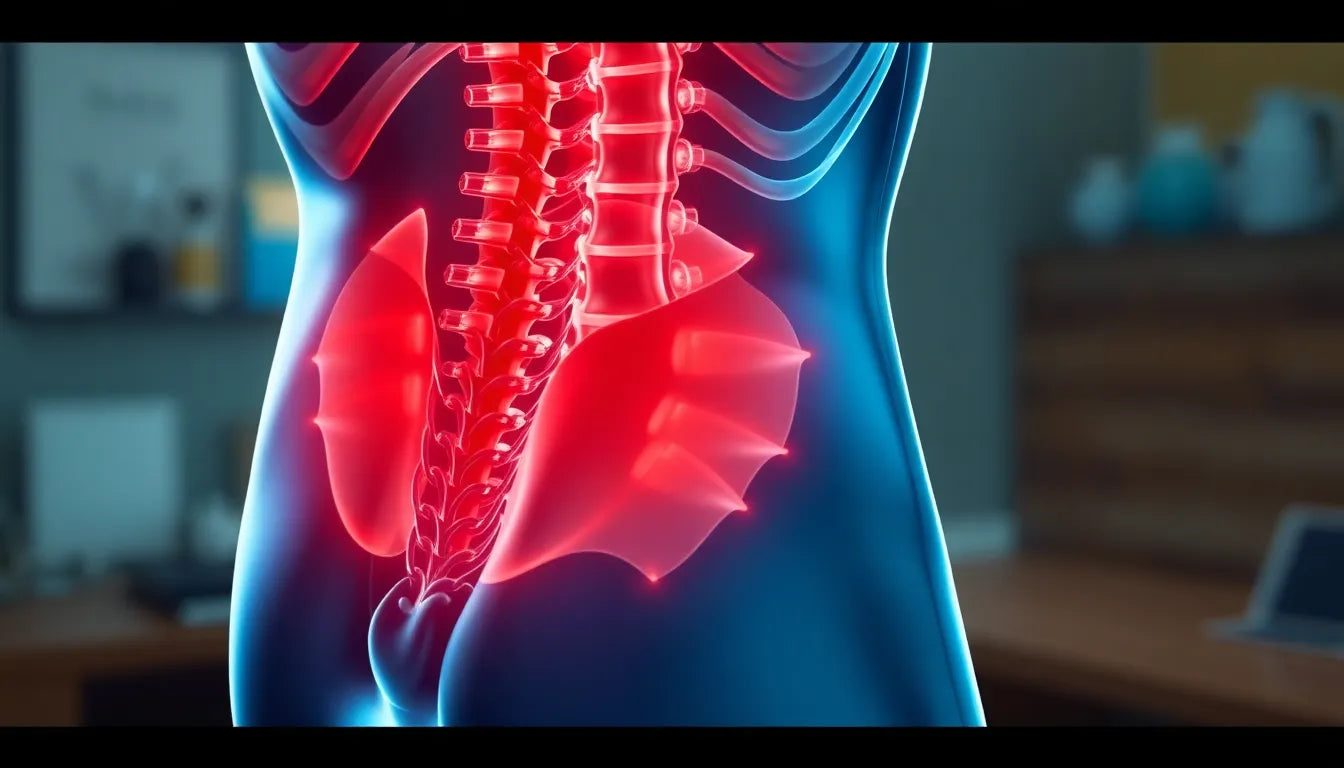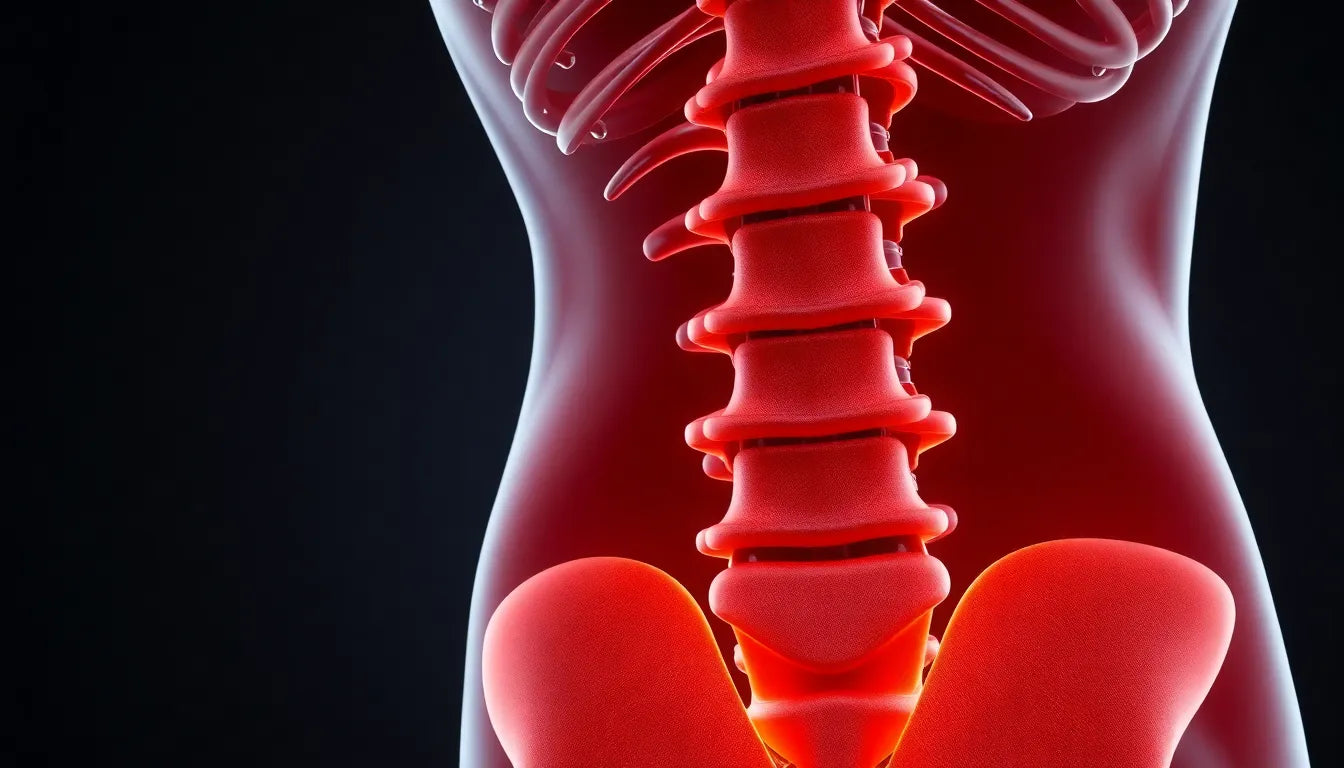Understanding the complexities of a herniated disc is crucial for those seeking relief from its debilitating symptoms. A herniated disc occurs when the soft, gel-like center of a spinal disc pushes through a tear in its tougher exterior. This condition can lead to significant discomfort, with symptoms ranging from sharp pain and numbness to muscle weakness. These symptoms often manifest in the back, neck, or limbs, depending on the location of the affected disc. With millions affected worldwide, herniated discs are a common issue, frequently resulting from age-related wear and tear or acute injuries.
The quest for relief
For those suffering from a herniated disc, the search for effective relief is often a challenging journey. Conventional treatments typically include physical therapy, pain medications, and in severe cases, surgery. While these methods can be effective, they are not without drawbacks, such as potential side effects from medications or the risks associated with surgical procedures. This has led many to explore alternative therapies, with acupuncture emerging as a popular option for managing pain without the invasiveness of conventional treatments.
Acupuncture's rising popularity
Acupuncture, an ancient practice rooted in Traditional Chinese Medicine, has gained significant traction in recent years as a natural approach to pain management. This method involves the insertion of fine needles into specific points on the body, aiming to balance energy flow and promote healing. Its appeal lies in its minimal side effects and holistic approach, making it an attractive option for those wary of conventional medical interventions. The growing interest in acupuncture is reflected in numerous studies and patient testimonials, which highlight its potential to alleviate pain and improve quality of life for individuals with herniated discs.
This blog aims to delve into how acupuncture can serve as a viable solution for those grappling with the pain of a herniated disc. By examining the principles behind acupuncture and reviewing clinical evidence, we hope to provide a comprehensive overview of this alternative therapy's benefits and limitations. Whether you're considering acupuncture for the first time or seeking more information to enhance your current treatment plan, understanding its role in managing herniated disc pain could be a pivotal step towards finding relief.
how acupuncture works for herniated discs
Acupuncture operates on the foundational principles of Traditional Chinese Medicine, which emphasize the balance and flow of energy, or Qi, throughout the body. According to this ancient practice, Qi flows along pathways known as meridians, and any disruption in this flow can lead to pain and illness. Acupuncture aims to restore the balance of Qi by stimulating specific points on these meridians with fine needles. This stimulation is believed to unblock the energy flow, thereby promoting healing and reducing pain.
For those suffering from herniated disc pain, acupuncture involves the strategic placement of needles in areas that correspond to the affected nerves and muscles. The insertion of these needles is typically painless, and the process is designed to trigger the body's natural pain-relieving mechanisms. By targeting specific points, acupuncture can help alleviate the discomfort associated with herniated discs, providing a non-invasive alternative to more conventional treatments.
clinical evidence supporting acupuncture's effectiveness
The effectiveness of acupuncture in managing herniated disc pain is supported by a growing body of clinical research. Numerous high-quality studies and systematic reviews have demonstrated that acupuncture can significantly reduce pain and improve function in patients with lumbar and cervical herniated discs. In many cases, acupuncture has been shown to outperform traditional rehabilitative therapies, offering a compelling option for those seeking alternative treatments.
For instance, a systematic review published in the Journal of Pain Research highlighted acupuncture's ability to decrease pain intensity and improve mobility in individuals with herniated discs. The review analyzed multiple studies, revealing that patients experienced substantial relief from symptoms after a series of acupuncture sessions. This evidence underscores acupuncture's potential as a viable treatment option for herniated disc sufferers.
mechanisms of pain relief through acupuncture
While the exact mechanisms by which acupuncture alleviates herniated disc pain are not fully understood, several scientific theories offer insights into its effectiveness. One prominent theory suggests that acupuncture stimulates the release of endorphins, the body's natural painkillers, which can help reduce pain perception. Additionally, acupuncture may modulate the nervous system, leading to decreased nerve excitability and improved pain threshold.
Research also indicates that acupuncture can influence the production of neurotransmitters and hormones, further contributing to its analgesic effects. By enhancing blood circulation and reducing inflammation around the affected disc, acupuncture can promote healing and provide sustained relief from pain. The combination of these physiological responses positions acupuncture as a promising approach for managing herniated disc symptoms.
To illustrate the impact of acupuncture, consider a study involving 200 patients with lumbar disc herniation. The study found that those who received acupuncture treatment reported a significant reduction in pain and disability compared to those who underwent standard physical therapy. Such findings highlight the potential benefits of incorporating acupuncture into comprehensive pain management plans for herniated disc patients.
In conclusion, acupuncture offers a natural and effective solution for individuals seeking relief from the discomfort of herniated discs. With its ability to stimulate the body's healing processes and provide significant pain relief, acupuncture stands out as a valuable alternative to conventional treatments. As research continues to support its efficacy, acupuncture may become an increasingly integral part of holistic care for herniated disc sufferers.
Integrating acupuncture into treatment plans
For those considering acupuncture as a treatment for herniated disc pain, it's essential to approach this therapy with careful planning. The first step is finding a qualified and licensed acupuncturist, preferably one with experience in treating musculoskeletal conditions. Consulting with healthcare providers about the potential benefits and risks of acupuncture is also advisable, as they can offer guidance on how it might complement existing treatment plans.
Combining acupuncture with other therapies, such as physical therapy or lifestyle changes, can enhance overall pain management. Physical therapy can help strengthen the muscles supporting the spine, while acupuncture addresses pain and inflammation. Moreover, adopting lifestyle modifications like ergonomic adjustments and regular exercise can support the healing process, offering a comprehensive approach to managing herniated disc symptoms.
Patient experiences and testimonials
Many patients have reported positive outcomes from incorporating acupuncture into their treatment regimens. For instance, Jane, a 45-year-old office worker, shared her experience: "After trying various treatments with limited success, acupuncture provided significant relief from my back pain. It was a game-changer for me." Such testimonials underscore the importance of individualized treatment plans, as each patient's response to acupuncture can vary.
These personal stories highlight the potential of acupuncture to improve quality of life for those struggling with herniated disc pain. By tailoring treatment to individual needs and combining it with other supportive therapies, patients can achieve more effective and sustainable pain relief.
Frequently Asked Questions
Q1: Is acupuncture safe for treating herniated discs?
A: Yes, when performed by a trained and licensed practitioner, acupuncture is generally considered safe with minimal risks.
Q2: How many acupuncture sessions are typically needed for herniated disc relief?
A: The number of sessions varies depending on the severity of the condition and individual response, but many patients notice improvements after a few sessions.
Q3: Can acupuncture cure herniated discs?
A: While acupuncture may not cure the underlying structural issue, it can significantly reduce pain and improve quality of life.
Q4: Are there any side effects associated with acupuncture?
A: Side effects are rare but may include minor bruising or soreness at needle sites.
Q5: How does acupuncture compare cost-wise to other treatments for herniated discs?
A: Acupuncture can be cost-effective compared to surgery and long-term medication, especially when considering the potential for reduced pain and improved function.
In conclusion, acupuncture presents a natural and effective option for managing herniated disc pain. By integrating this ancient practice into modern treatment plans, patients can benefit from its holistic approach, potentially achieving greater relief and enhanced well-being. As interest in acupuncture continues to grow, it remains a promising avenue for those seeking alternatives to conventional pain management strategies.
Sources
- Vickers, A. J., et al. (2018). "Acupuncture for Chronic Pain: Update of an Individual Patient Data Meta-Analysis." The Journal of Pain.
- Yuan, Q. L., et al. (2015). "Efficacy of Acupuncture for Chronic Pain: A Systematic Review and Meta-Analysis." JAMA Internal Medicine.
- Lee, J. H., et al. (2013). "Acupuncture for Pain Relief in Patients with Herniated Disc: A Systematic Review and Meta-Analysis." Spine Journal.
- MacPherson, H., et al. (2017). "Acupuncture for Chronic Pain and Depression in Primary Care: A Pragmatic Randomized Trial." Annals of Family Medicine.
- Zhao, L., et al. (2015). "Acupuncture as an Adjunct to Standard Treatment for Lumbar Disc Herniation: A Randomized Controlled Trial." Journal of Pain Research.


















